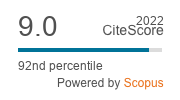Bacterial vaginosis (BV) is characterised by a depletion of lactobacilli in favour of an overgrowth of anaerobic bacteria. It is associated with increased risk for urogenital infections and abortion. In this study we assessed the effect of a yoghurt drink containing Lactobacillus strains on BV. The strains had been isolated from healthy pregnant women and selected for acidification capacity, production of H2O2, glycogen utilisation, bile salt tolerance and inhibition of pathogens. Using Amsel criteria BV was diagnosed in 36 women aged ≥18 years with stable menstrual cycle or menopause. They were treated with oral metronidazole for 7 days (2×500 mg/d). Starting with the treatment, women consumed twice daily either verum or placebo during 4 weeks. Verum was 125 g yoghurt containing (besides Lactobacillus delbrueckii ssp. bulgaricus and Streptococcus thermophilus) living strains Lactobacillus crispatus LbV 88 (DSM 22566), Lactobacillus gasseri LbV 150N (DSM 22583), Lactobacillus jensenii LbV 116 (DSM 22567) and Lactobacillus rhamnosus LbV96 (DSM 22560), each 1×107 cfu/ml; placebo was 125 g chemically acidified milk. After 4 weeks of intervention 0 of 17 had BV in the verum group versus 6 of 17 in the s.a. control (0.018 in Fisher Exact test). Amsel score decreased during the intervention period by 4.0 (median) (4.0; 3.0) (25th; 75th percentile) in the verum group compared to 2.0 (4.0; 0.0) in the control group (P=0.038 in Mann-Whitney test). Discharge and odour (Amsel criteria 2+3) also decreased by 2.0 (2.0; 1.0) in the verum compared to 1.0 (2.0; 0.0) in the control group (P=0.01) and differed after 4 weeks intervention between the groups 0.0 (0.0; 0.0) versus 1.0 (0.0; 2.0) (P=0.001). Nugent score decreased during the intervention period by 5.5 (7.0;2.3) in the verum compared to 3.0 (6.0;0.5) in the control group (P=0.158). Additional intake of yoghurt containing these probiotic strains improved the recovery rate and symptoms of BV and tended to improve the vaginal microbial pattern.
RESEARCH ARTICLE
Effect of a yoghurt drink containing Lactobacillus strains on bacterial vaginosis in women – a double-blind, randomised, controlled clinical pilot trial
C. Laue Related information
1Clinical Research Center, Schauenburgerstraβe 116, 24118 Kiel, Germany.
, E. Papazova Related information1Clinical Research Center, Schauenburgerstraβe 116, 24118 Kiel, Germany.
, A. Liesegang Related information1Clinical Research Center, Schauenburgerstraβe 116, 24118 Kiel, Germany.
, A. Pannenbeckers Related information1Clinical Research Center, Schauenburgerstraβe 116, 24118 Kiel, Germany.
, P. Arendarski Related information2LADR, Lauenburger Str. 67, 21502 Geesthacht, Germany.
, B. Linnerth Related information3Dairyfem, Tuchlauben 18/12, 1010 Vienna, Austria.
, K.J. Domig Related information4Department of Food Science and Technology, BOKU – University of Natural Resources and Life Sciences, Muthgasse 18, A-1190 Vienna, Austria.
, W. Kneifel Related information4Department of Food Science and Technology, BOKU – University of Natural Resources and Life Sciences, Muthgasse 18, A-1190 Vienna, Austria.
, L. Petricevic Related information5Department of Obstetrics and Fetomaternal Medicine, Medical University of Vienna, Währinger Gürtel 18-20, 1090 Vienna, Austria.
, J. Schrezenmeir Related information1Clinical Research Center, Schauenburgerstraβe 116, 24118 Kiel, Germany.
6University Medicine, Langenbeckstraβe 1, 55131 Mainz, Germany.
*Corresponding author: j.
6University Medicine, Langenbeckstraβe 1, 55131 Mainz, Germany.
*Corresponding author: j.
Beneficial Microbes: 9
(1)- Pages: 35 - 50

Published Online: October 25, 2017
Abstract
Keywords: probiotics, lactobacilli, vaginosis, microbiota
2022 Journal Impact Factor
5.4
source: Journal Impact Factor 2023™ from Clarivate™

Institutional Offers
For institutional orders, please contact [email protected].
-
A.A. Hibberd, C.C. Yde, M.L. Ziegler, A.H. Honoré, M.T. Saarinen, S. Lahtinen, B. Stahl, H.M. Jensen and L.K. Stenman
-
E.E. Blaak, E.E. Canfora, S. Theis, G. Frost, A.K. Groen, G. Mithieux, A. Nauta, K. Scott, B. Stahl, J. van Harsselaar, R. van Tol, E.E. Vaughan and K. Verbeke
-
K. Venema, J. Verhoeven, C. Beckman and D. Keller
-
E. Arvidsson Nordström, C. Teixeira, C. Montelius, B. Jeppsson and N. Larsson
-
J.E. Haarhuis, A. Kardinaal and G.A.M. Kortman
-
E.E. Blaak, E.E. Canfora, S. Theis, G. Frost, A.K. Groen, G. Mithieux, A. Nauta, K. Scott, B. Stahl, J. van Harsselaar, R. van Tol, E.E. Vaughan and K. Verbeke
-
K. Lippert, L. Kedenko, L. Antonielli, I. Kedenko, C. Gemeier, M. Leitner, A. Kautzky-Willer, B. Paulweber and E. Hackl
-
K. Tsilingiri and M. Rescigno
-
M. Ozen and E.C. Dinleyici
-
Y. Kobayashi, T. Kuhara, M. Oki and J.-Z. Xiao



